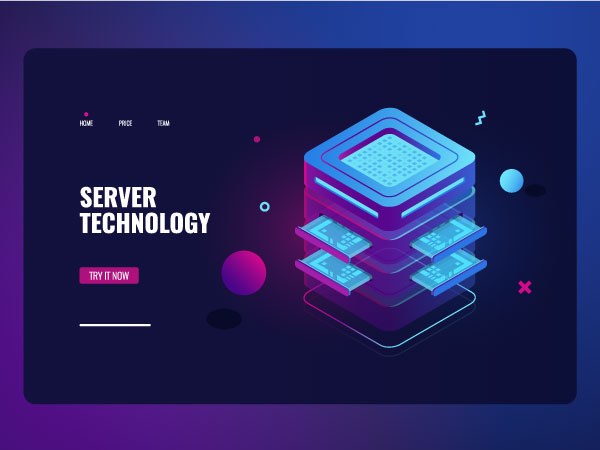What Is a Virtual Machine
Virtual machines (VMs) are essential for businesses of all sizes. VMs allow businesses to create and run multiple virtual copies of an operating system on a single physical machine.
As the world becomes increasingly digital, VMs will play a vital role in helping businesses stay competitive.
Why? How do they do that? Read up to learn more regarding the VM meaning and how your business can benefit from that.
What Is a VM Meaning?
A Virtual Machine (shortened to VM) is an application environment or a software-based operating system which works the same as any other computer within a computer. VM runs on isolated partitions of its host. It has CPU power, memory, operating system, and other resources and, if needed, can connect to the internet.
How Do Virtual Machines Work?
A VM behaves like an actual computer but typically is a computer file (an image).
Virtualization is creating a software-based computer with dedicated parts of CPU, memory, and storage that are parts from a physical host computer (your personal computer) and/or a remote server (a server in a cloud provider’s data center). Stimulating the virtual hardware allows multiple Virtual Machines (guests) to run on a single machine.
A hypervisor is a software that supervises the process, and it is responsible for:
- Managing and provisioning memory and storage (resources) from the host to guests.
- Scheduling operations in Virtual Machines to not overrun each other during resource usage.
Virtual Machines can not function if there is the hypervisor doesn’t work.
In virtualization are used two types of hypervisors are:
Type 1
Type 1 hypervisors are the bare metal hypervisors installed natively on the underlying physical hardware. By interacting directly with hosts without extra software in between, VMs allocate hardware resources.
One can find Type 1 hypervisors in server-based environments. A separate management tool is needed to handle creating new virtual machine instances or managing permissions from guests’ activities.
Type 2
Type 2 are the hosted hypervisors that run on the host’s computer OS. Type 2 passes Virtual Machine requests and then provisions appropriate physical resources to each guest.
Since every VM action goes through the host OS first, type 2 hypervisors are slower than their type 1 counterparts. Also, guest operating systems aren’t tied to physical hardware.
Type 2 hypervisors are suitable for small businesses or personal users without dedicated servers for virtualization.
What is the VM meaning of partitioned from the rest of the system? The software inside a Virtual Machine can not interfere with the host’s computer’s primary OS.

What are Virtual Machines Used For?
Various ways how to use VM:
- To build and deploy apps to the cloud
- To spin up a new environment by making it quicker and simpler for devs to run dev-test scenarios
- To try a new OS, including beta releases
- To access virus-infected data or to run an old application by installing an older operation system
- To back up your existing operation system
Why Business Must Have Virtual Machines?
Businesses can utilize virtual desktop infrastructure by enabling virtual machine software. Users can remotely access their desktop environments with virtual desktop infrastructure deployments. Hybrid workers can access their digital office anytime, anywhere, and can be productive by quickly accessing the company tools.
What Are The Benefits of Using VMs?
Virtual Machines provide various benefits such as:
Saving costs:
- Saving costs
- Speed and agility
- Downtime lowering
- Security Benefits
- Scalability
You can drastically reduce a physical infrastructure footprint by running many virtual environments from one infrastructure. Decrease the need to maintain various servers, and save costs on maintenance and electricity.
Speed and agility:
With virtualization, the process of running dev tests is much quicker and easier.
Downtime lowering:
Another VM meaning is their significant downtime lowering since they are easily portable. VMs are an excellent backup solution when unexpectedly the host goes down.
Security Benefits:
You can use Virtual Machines to study computer viruses safely; they avoid risking the host computer by isolating the virus.
Scalability:
VMs allow you to increase the performance and availability of your apps. You need to add more physical/ virtual servers for distributing the workload across multiple VWs.
Conclusion
This information’s purpose is to make businesses aware of VM meaning and what the benefits are if they apply to their hybrid work culture.
Managed IT Service Providers Alpharetta can help your business by providing the practical tools needed for you to benefit from virtualization.
What are your thoughts? Was this helpful to you? Leave a comment because we’d love to hear more about your practices and experiences.


